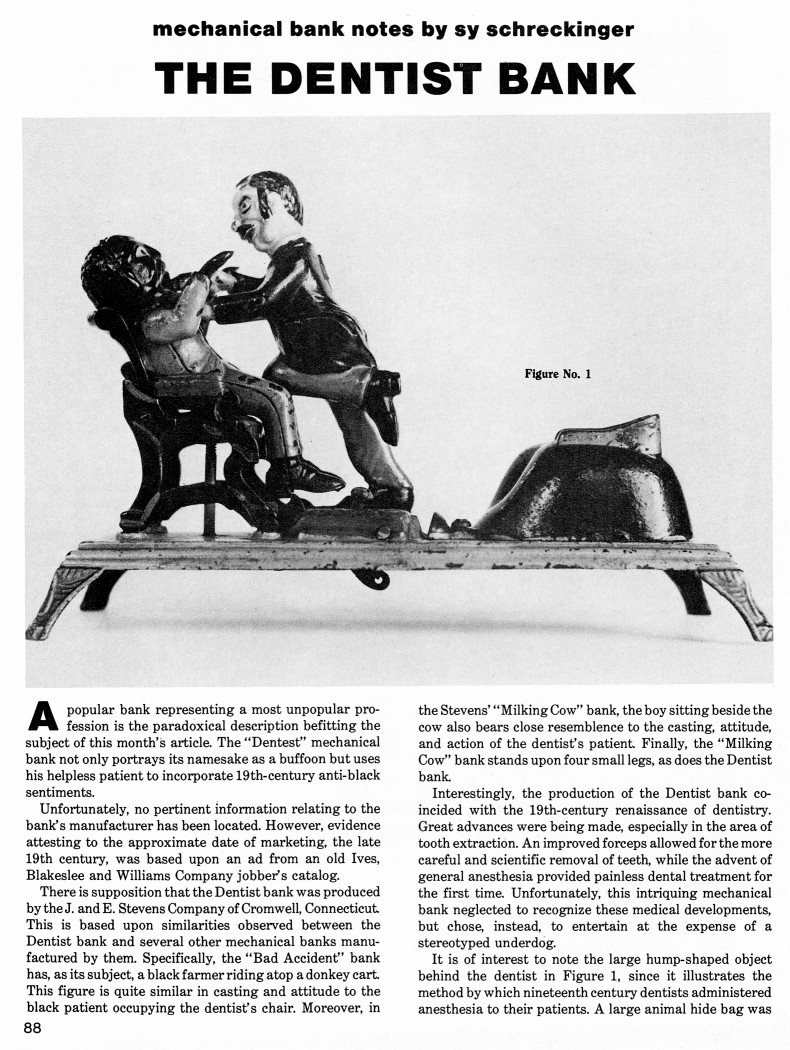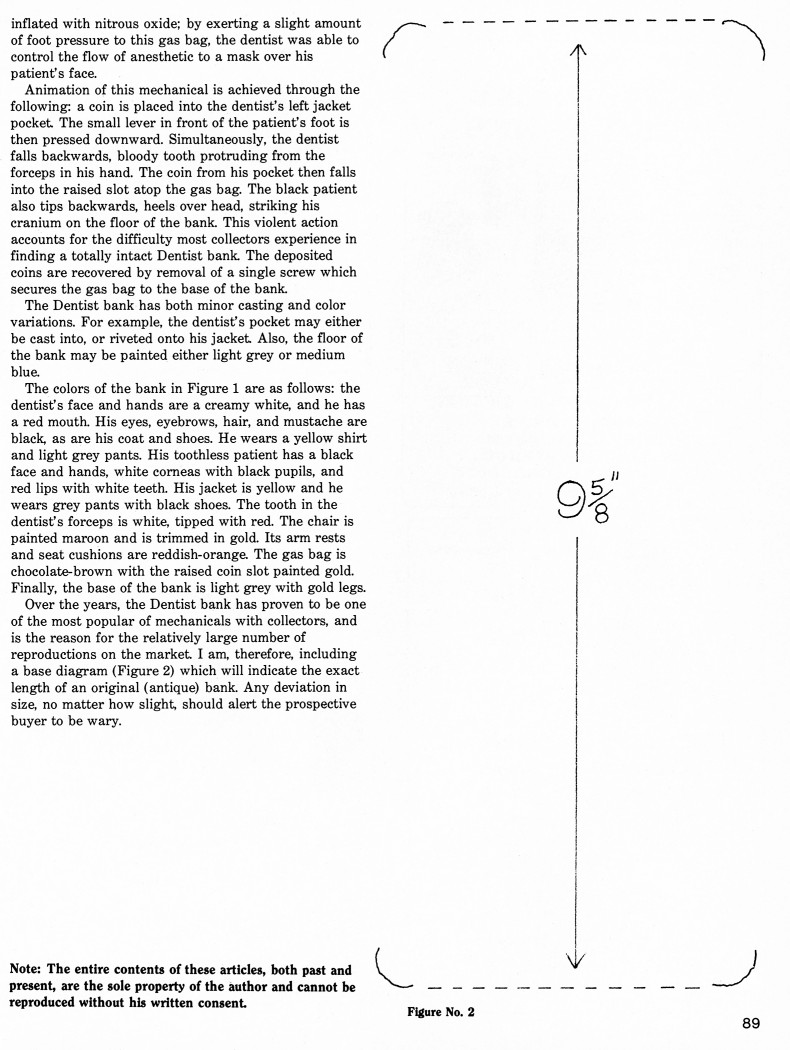|
The Dentist Bank
by Sy Schreckinger – ANTIQUE TOY WORLD Magazine – October, 1986
A popular bank
representing a most unpopular profession is the paradoxical description
befitting the subject of this month's article. The "Dentist" mechanical
bank not only portrays its namesake as a buffoon but uses his helpless
patient to incorporate 19th-century anti-black sentiments.
Unfortunately, no pertinent information relating to the bank's
manufacturer has been located. However, evidence attesting to the
approximate date of marketing, the late 19th century, was based upon an ad
from an old Ives, Blakeslee and Williams Company jobber's catalog.
There is supposition that the Dentist bank was produced by the J. and
E. Stevens Company of Cromwell, Connecticut. This is based upon
similarities observed between the Dentist bank and several other
mechanical banks manufactured by them. Specifically, the "Bad Accident"
bank has, as its subject, a black farmer riding atop a donkey cart. This
figure is quite similar in casting and attitude to the black patient
occupying the dentist's chair. Moreover, in the Stevens"' Milking Cow"
bank, the boy sitting beside the cow also bears close resemblance to the
casting, attitude, and action of the dentist's patient. Finally, the
"Milking Cow" bank stands upon four small legs, as does the Dentist bank.
Interestingly, the production of the Dentist bank coincided with the
19th-century renaissance of dentistry. Great advances were being made,
especially in the area of tooth extraction. An improved forceps allowed
for the more careful and scientific removal of teeth, while the advent of
general anesthesia provided painless dental treatment for the first time.
Unfortunately, this intriguing mechanical bank neglected to recognize
these medical developments, but chose, instead, to entertain at the
expense of a stereotyped underdog.
It is of interest to note the large hump-shaped object behind the
dentist in Figure 1, since it illustrates the method by which nineteenth
century dentists administered anesthesia to their patients. A large animal
hide bag was inflated with nitrous oxide; by exerting a slight amount of
foot pressure to this gas bag, the dentist was able to control the flow of
anesthetic to a mask over his patient's face.
Animation of this mechanical is achieved through the following: a
coin is placed into the dentist's left jacket pocket. The small lever in
front of the patient's foot is then pressed downward. Simultaneously, the
dentist falls backwards, bloody tooth protruding from the forceps in his
hand. The coin from his pocket then falls into the raised slot atop the
gas bag. The black patient also tips backwards, heels over head, striking
his cranium on the floor of the bank. This violent action accounts for the
difficulty most collectors experience in finding a totally intact Dentist
bank. The deposited coins are recovered by removal of a single screw which
secures the gas bag to the base of the bank.
The Dentist bank has both minor casting and color variations. For
example, the dentist's pocket may either be cast into, or riveted onto his
jacket. Also, the floor of the bank may be painted either light grey or
medium blue.
The colors of the bank in Figure 1 are as follows: the dentist's face
and hands are a creamy white, and he has a red mouth. His eyes, eyebrows,
hair, and mustache are black, as are his coat and shoes. He wears a yellow
shirt and light grey pants. His toothless patient has a black face and
hands, white corneas with black pupils, and red lips with white teeth. His
jacket is yellow and he wears grey pants with black shoes. The tooth in
the dentist's forceps is white, tipped with red. The chair is painted
maroon and is trimmed in gold. Its arm rests and seat cushions are
reddish-orange. The gas bag is chocolate-brown with the raised coin slot
painted gold. Finally, the base of the bank is light grey with gold legs.
Over the years, the Dentist bank has proven to be one of the most
popular of mechanicals with collectors, and is the reason for the
relatively large number of reproductions on the market. I am, therefore,
including a base diagram (Figure 2) which will indicate the exact length
of an original (antique) bank. Any deviation in size, no matter how
slight, should alert the prospective buyer to be wary.
Note: The entire contents of these articles, both past and present,
are the sole property of the author and cannot be reproduced without his
written consent.
|


